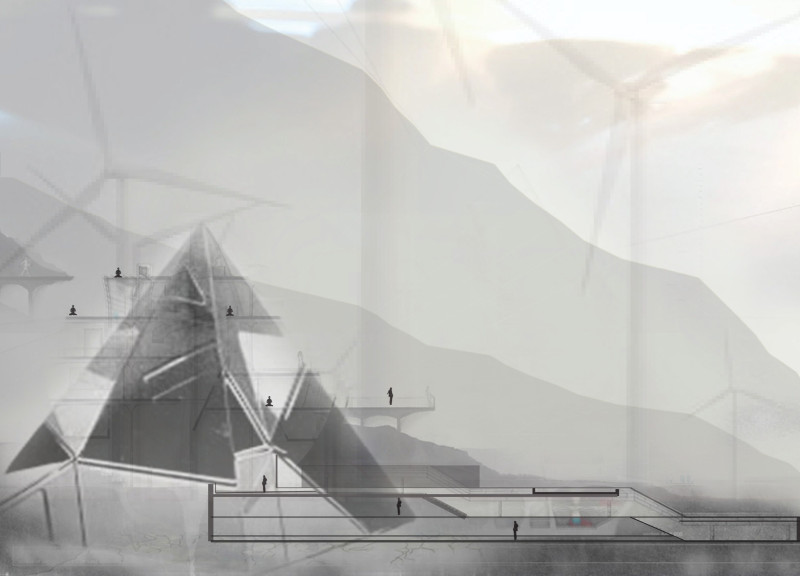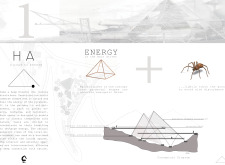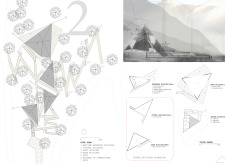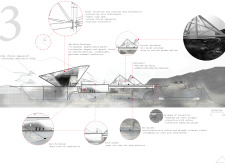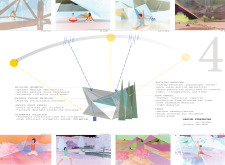5 key facts about this project
The project under analysis presents a modern architectural design that demonstrates a harmonious integration of form and function. Developed in a specific context, this structure serves its intended purpose while also engaging with the surrounding environment. Its design encapsulates a forward-thinking approach, positioning itself as a notable work within contemporary architecture.
The design comprises multiple distinct elements that contribute to its overall character and functionality. The facade consists of a combination of glass and steel, which results in a sleek and minimalistic appearance. The glass allows for ample natural light while providing transparency that promotes a connection between indoor and outdoor spaces. The steel framework supports structural integrity while simultaneously contributing to the aesthetic appeal of the building. The project integrates green roofs and terraces that not only enhance the visual aspect but also contribute to sustainability efforts.
One of the key features of this project is its use of renewable materials and energy-efficient technologies. The choice of sustainable materials, such as reclaimed wood and recycled metals, reflects a commitment to reducing environmental impact. Additionally, the incorporation of solar panels on the roof aligns with modern energy strategies, ensuring that the building not only functions efficiently but also promotes ecological responsibility.
The spatial organization within the project is thoughtfully executed, with an open floor plan that facilitates flexibility and adaptability. Spaces are designed to foster interaction and collaboration, crucial in various types of modern-use scenarios, whether it be residential or commercial. The use of partition walls crafted from lightweight materials allows for customization and reconfiguration without significant structural changes.
Moreover, the project's relationship to its geographical location is highlighted through strategic landscaping and the orientation of windows. These design choices maximize natural light exposure while minimizing energy consumption for heating and cooling. The structure blends seamlessly with its surroundings, responding to the local climate and culture, which is a hallmark of successful architectural design.
Materiality plays a significant role in this project, with careful consideration given to texture, color, and sustainability. The core materials utilized include high-energy performance glazing, pre-cast concrete panels, reclaimed wood for interior finishes, and paving materials designed to minimize runoff. Each element serves a functional purpose while also enhancing the overall aesthetic quality of the building.
The unique design approaches evident in this project demonstrate a balanced combination of practicality and artistic expression. The integration of natural elements, efficient technologies, and a focus on human experience showcases a sophisticated understanding of contemporary architectural practices.
For those interested in delving deeper into the architectural plans, architectural sections, and architectural designs of this project, further exploration is encouraged. Visiting the project presentation will provide valuable insights into the intricate details and innovative architectural ideas that define this work.


